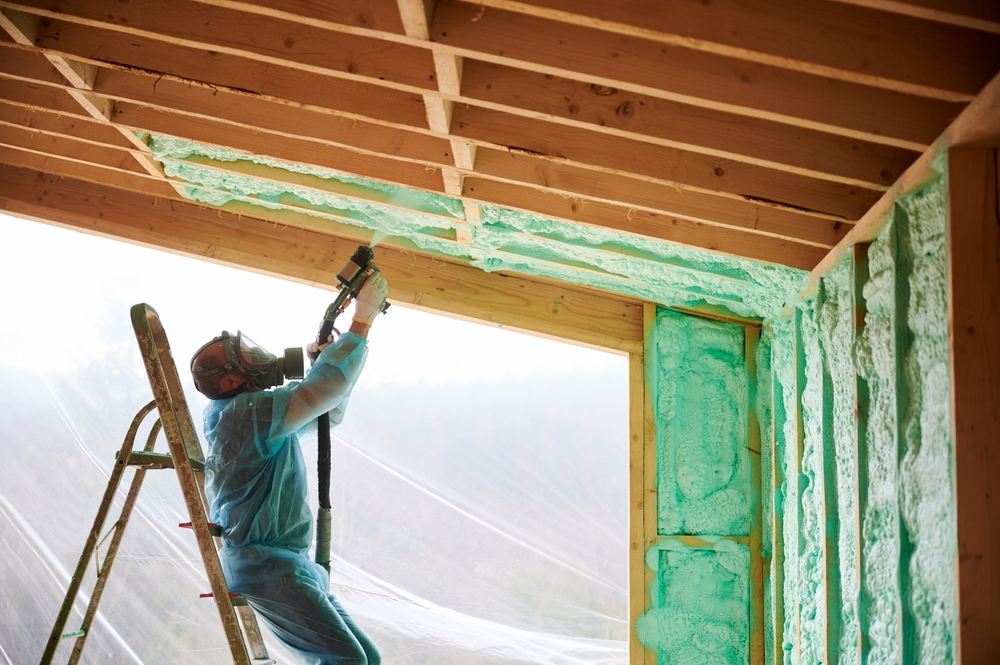How to Choose the Right Insulation for Your Louisville Home: A Guide to Boosting Energy Efficiency

When it comes to maintaining a comfortable living environment, insulation plays a pivotal role. For homeowners in Louisville, the climate presents unique challenges, with hot summers and cold winters, making it crucial to invest in the right insulation. By choosing the proper insulation, you not only ensure comfort throughout the year but also improve the energy efficiency of your home. This comprehensive guide will walk you through the factors to consider and the best insulation options to help you enhance energy efficiency for your Louisville home.
The Importance of Insulation in Louisville Homes
In Louisville, the fluctuating temperatures require a home to be well-insulated to keep it cool in the summer and warm in the winter. Insulation acts as a barrier, preventing heat from escaping during colder months and blocking heat from entering during the summer. This helps in reducing the need for constant heating or cooling, which can result in significant savings on energy bills. Beyond the financial benefits, proper insulation also enhances indoor comfort and contributes to a quieter living space by minimizing outside noise.
Furthermore, insulation reduces the load on your HVAC system, potentially extending its lifespan. This can lead to fewer repairs and replacements over time. For Louisville residents, insulation offers not only comfort and efficiency but also the potential to create a more sustainable living environment by reducing the home’s carbon footprint. Therefore, making an informed decision about insulation can pay off in the long run.
Types of Insulation to Consider for Your Louisville Home
There are several types of insulation materials, each with its own set of advantages and disadvantages. Choosing the right one for your Louisville home depends on factors such as your budget, the area of your home you’re insulating, and the climate in which you live. Some of the most common insulation types include fiberglass, cellulose, spray foam, and rigid foam boards.
Fiberglass insulation is one of the most popular choices due to its affordability, ease of installation, and reliable performance. It comes in batt or roll forms and is most commonly used in attics, walls, and floors. This material is non-combustible and has excellent thermal resistance, making it a strong contender for insulating your Louisville home.
Cellulose insulation, made from recycled paper products, is an eco-friendly option that provides great coverage and is typically installed as blown-in material. It has a higher R-value than fiberglass, which means it provides better insulation per inch. This makes it ideal for homes that require enhanced thermal resistance, such as those in areas with extreme seasonal temperature shifts like Louisville.
Spray foam insulation is another highly effective option. It expands on application, filling gaps and crevices that other materials might miss. It provides an airtight seal that prevents both heat loss and moisture infiltration, which is particularly important in areas with fluctuating humidity levels like Louisville. However, spray foam insulation tends to be more expensive than fiberglass and cellulose, but its long-term energy savings can outweigh the upfront costs.
Rigid foam board insulation is durable and moisture-resistant, which makes it a good choice for areas prone to moisture, such as basements. It is available in various thicknesses and is typically used in combination with other insulation types for a complete insulation solution. Its high R-value per inch of thickness means it is effective at improving energy efficiency.
Evaluating R-Value and Other Key Factors
One of the most important considerations when selecting insulation for your Louisville home is the R-value, which measures the insulation’s ability to resist heat flow. The higher the R-value, the better the material’s insulating properties. Different areas of your home require different R-values, and understanding this is key to maximizing energy efficiency.
For example, the attic is one of the most critical areas to insulate because heat rises, and a poorly insulated attic can lead to significant energy loss. The recommended R-value for attic insulation in Louisville typically ranges from R-38 to R-60, depending on the type of insulation you choose. Walls, floors, and basements will require lower R-values, with R-13 to R-21 being the common range for walls in most homes.
However, R-value isn’t the only factor to consider when choosing insulation. Moisture resistance is another essential consideration, especially in Louisville’s humid climate. Some insulation materials, such as fiberglass, are more susceptible to moisture, which can reduce their effectiveness and lead to mold growth. If you live in an area prone to moisture, materials like spray foam or rigid foam may be better suited for your home.
In addition, soundproofing capabilities can be an important factor, especially in noisy neighborhoods or for homeowners who value peace and quiet. Certain insulation materials, such as cellulose, are better at absorbing sound than others, making them a good choice for noise reduction.
Professional Installation vs. DIY Insulation Projects
While it’s tempting to save money by installing insulation yourself, it’s important to weigh the pros and cons before making a decision. DIY insulation projects can be successful for those with the right skills and tools, but they may not always provide the same level of performance as professional installation. For instance, spray foam insulation requires specialized equipment for proper application, and any mistakes in installation can lead to gaps that reduce the effectiveness of the insulation.
Hiring a professional insulation contractor ensures that the job is done correctly and to code. Professionals also have the expertise to identify potential issues, such as air leaks or moisture problems, that could affect the performance of your insulation. They can also recommend the best insulation type based on your home’s specific needs, as well as offer insights into local building codes and rebates or incentives available in Louisville for energy-efficient home upgrades.
Furthermore, improper installation can void manufacturer warranties, meaning that if something goes wrong, you may have to pay for repairs out of pocket. Although professional installation may come with a higher upfront cost, the long-term benefits of energy savings and peace of mind may outweigh the initial investment.
Maintaining Insulation for Long-Term Efficiency
Insulation is a long-term investment, but it’s important to maintain it to ensure its effectiveness over time. Over the years, your home’s insulation may settle, degrade, or become damaged, which can compromise its performance. Regular inspections are crucial for identifying any issues early on. In particular, keep an eye on areas such as the attic and basement, where insulation is most susceptible to damage from moisture, pests, or general wear and tear.
If you notice signs of mold, mildew, or water damage, it’s important to address these issues promptly to prevent further damage to your insulation and home. In some cases, damaged insulation may need to be replaced entirely. Additionally, if you’ve made upgrades to your home, such as installing new windows or doors, you may need to update your insulation to maintain optimal energy efficiency.
As part of your regular home maintenance routine, also check for drafts or air leaks in areas like windows, doors, and vents. Sealing these leaks can improve the performance of your insulation, as even the best insulation won’t be effective if warm or cool air is escaping through gaps and cracks.
Conclusion
Choosing the right insulation for your Louisville home is a critical step in improving energy efficiency, enhancing comfort, and reducing energy costs. By considering factors such as insulation material types, R-value, moisture resistance, and professional installation, you can make an informed decision that best suits your home’s needs. Louisville’s climate calls for insulation that can effectively manage temperature fluctuations, and selecting the right materials can make a substantial difference in the performance of your HVAC system, the comfort of your home, and your overall energy consumption.
By following the guidance outlined in this guide, homeowners can make better decisions on insulation and ensure that their Louisville homes are as energy-efficient as possible. Whether you opt for fiberglass, cellulose, spray foam, or rigid foam, the right insulation will provide long-term benefits, making your home more comfortable and reducing your environmental impact.
Need Energy Efficient Home Solutions in Louisville, KY?
We here at PrestonGREEN are a team of trusted and experienced wall contractors specializing in ICF walls. Our team is highly skilled in installing and constructing ICF walls, using the highest-quality materials. ICF is known to withstand natural disasters and is more energy efficient than a wood-proof home and comes available in sizes ranging from 6-inch to 12-inch. With ICF walls, our clients benefit from faster build times, considerable cost savings, and exceptional fire and sound resistance. Additionally, we deliver our firewood using a specialized machine, and we can set up the wood anywhere on your property, no re-stacking is required! Contact us today to learn more about what we can do for you!
